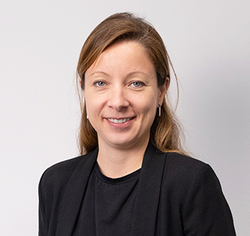Participating Groups
Claudia Keller-Valsecchi René Ketting Anton Khmelinskii Julian König Katja Luck Christof Niehrs Stamatis Papathanasiou Helle Ulrich Siyao Wang Sina WittmannBiology of gene dosage alterations

All sexually reproducing organisms inherit two copies of the genome – one from the mother and one from the father. Having both a maternal and paternal copy of the genome is extremely important, as mutations that disrupt gene copy number often result in miscarriage or severe genetic disorders. Our team is interested in the fundamental mechanisms and physiological relevance of gene copy number for regulating cellular function in eukaryotes. We study the causes and consequences of gene dosage alterations and their impact on developmental, evolutionary and ageing processes. A major interest of ours lies in the evolution of sex chromosomes and the molecular diversity of compensatory mechanisms.
Positions held
- Since May 2020: Group Leader, Institute of Molecular Biology (IMB), Mainz
- 2013 - 2020: Postdoctoral Fellow, MPI of Immunobiology & Epigenetics, Freiburg
- 2012 - 2013: Postdoctoral Fellow, Friedrich Miescher Institute, Basel
Education
- 2012: PhD in Biochemistry, Friedrich Miescher Institute, Basel
- 2008: MSc in Molecular Biology, Friedrich Miescher Institute, Basel
Selected publications by Claudia Keller Valsecchi
Kalita AI, Marois E*, Kozielska M, Weissing FJ, Jaouen E, Möckel MM, Rühle F, Butter F, Basilicata MF* and Keller Valsecchi CI* (2023) The sex-specific factor SOA controls dosage compensation in Anopheles mosquitos. Nature, doi: 10.1038/s41586-023-06641-0 (*indicates joint contribution) Link
Basilicata MF and Keller Valsecchi CI (2021) The good, the bad, and the ugly: Evolutionary and pathological aspects of gene dosage alterations. PLOS Genet, 17:e1009906 Link
Valsecchi CIK, Felicia Basilicata M, Georgiev P, Gaub A, Seyfferth J, Kulkarni T, et al. (2021) RNA nucleation by MSL2 induces selective X chromosome compartmentalization. Nature, 589:137-142 Link
Basilicata MF, Bruel AL, Semplicio G, Keller Valsecchi CI, Aktaş T, Duffourd Y, Rumpf T, Morton J, Bache I, Szymanski WG, Gilissen C, Vanakker O, Õunap K, Mittler G, van der Burgt I, El Chehadeh S, Cho MT, Pfundt R, Tan TY, Kirchhoff M, Menten B, Vergult S, Lindstrom K, Reis A, Johnson DS, Fryer A, McKay V, Fisher RB, Thauvin-Robinet C, Francis D, Roscioli T, Pajusalu S, Radtke K, Ganesh J, Brunner HG, Wilson M, Faivre L, Kalscheuer VM, Thevenon J, Akhtar A and Study DDD (2018) De novo mutations in MSL3 cause an X-linked syndrome marked by impaired histone H4 lysine 16 acetylation. Nat Genet, 50:1442–1451 Link
Keller Valsecchi CI, Basilicata MF, Semplicio G, Georgiev P, Gutierrez NM and Akhtar A (2018) Facultative dosage compensation of developmental genes on autosomes in Drosophila and mouse embryonic stem cells. Nat Commun, 9:3626 Link